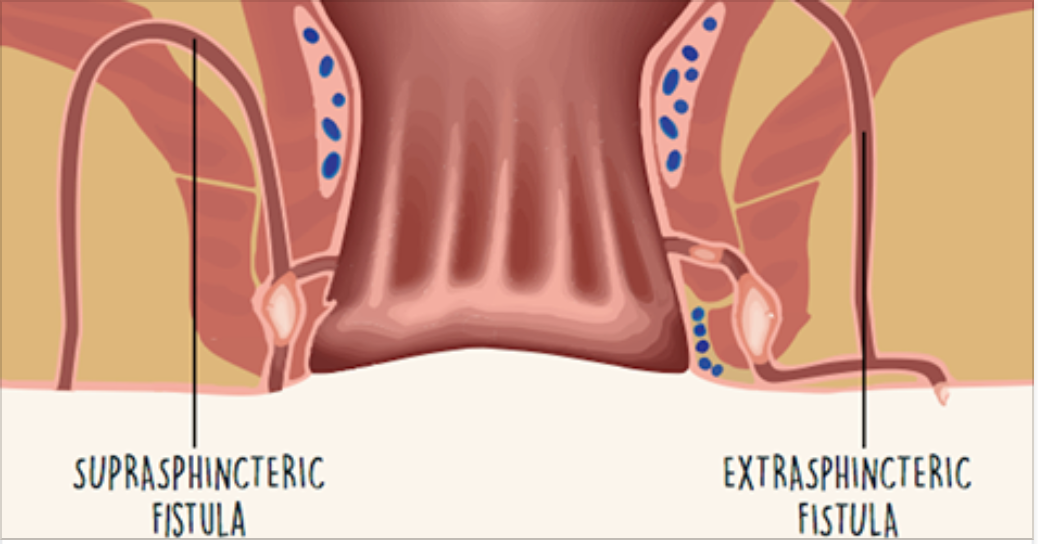An anal fistula often results from a previous or current anal abscess. One way a fistula may form is from an abscess a pocket of pus in the body.
 What Are The Causes Conditions Treatments Of Fistulas Ibd
What Are The Causes Conditions Treatments Of Fistulas Ibd
Crohns disease and diverticular disease are well known to cause fistula formation.

Why do fistulas form. What Causes Stenosis in an AV Fistula. An arteriovenous fistula may occur if you have a piercing injury such as a gunshot or stab wound on a part of your body where a vein and artery are side by side. However a fistula can also occur without an abscess.
Fistulas form when inflammation causes sores or ulcers to form on the inside wall of the intestine or nearby organs. Eventually it breaks through to the skin another body cavity or an organ creating a fistula. Being born with an arteriovenous fistula congenital.
An anal fistula is a small tunnel that develops between the end of the bowel and the skin near the anus where poo leaves the body. One of the main reasons an AV Fistula is the preferred route of hemodialysis treatments is the decreased risk of infectionThere is always a risk of infection when getting surgery of any kind but it is very low compared to the risk of continuing to do hemodialysis through another access. As many as 50 of people with an abscess get a fistula.
Your body responds to this damage by sending extra cells to repair the problem. In Africa the most common cause of fistulas is childbirth and obstructed labor that is left unrelieved. Infection or inflammation can also cause a fistula to form.
An anal fistula also called fistula-in-ano is a small tunnel that tracks from an opening inside the anal canal to an outside opening in the skin near the anus. When the pus drains away it can leave a small channel behind. Most of the time an abscess causes a fistula.
A fistula is an abnormal connection between two body parts such as an organ or blood vessel and another structure. The fistula is the tunnel that connects the gland to that opening. While the incidence of fistulas due to complicated births is lower in the United States other causes can create this troublesome condition.
An abcess or a collection of pus can also cause a fistula to form. Crohns disease an inflammatory disease of the intestine Radiation treatment for cancer. Injuries that pierce the skin.
This can result in infection. A gastrointestinal fistula occurs when an abnormal connection forms between part of the gastrointestinal tract and the skin or another organ resulting in stomach acid leaking out. They are a very common complication of inflammatory bowel disease IBD occurring more frequently in Crohns disease than ulcerative colitis.
A fistula is created during a short surgical intervention by joining an artery with a vein that is why it is called arteriovenous. 1 They are especially common when the colon and rectum are involved. A gastrointestinal fistula GIF is an abnormal opening in your digestive tract that causes gastric fluids to seep through the lining of your stomach or intestines.
Fistulas can result from an infection or inflammation injury or surgery. When a vein and an artery are connected to form an AV fistula the vein is at risk for damage caused by the change in blood flow rate and pressure from the high pressure high flow rate in the arterial system. A fistula is an abnormal connection between an organ and another structure.
The leading causes of an anal fistula are clogged anal glands and anal abscesses. Fistulas are usually located in the forearm. An abcess or a collection of pus can also cause a fistula to form.
Theyre usually the result of an infection near the anus causing a collection of pus abscess in the nearby tissue. Its rare but they can also come from conditions like tuberculosis sexually. Most anal fistulas form in the posterior midline.
Fistulas are usually the result of an injury or surgery. Other much less common conditions that can cause an anal fistula include. The most common cause of an anal fistula is an anal abscess although there are several other possible causes of the condition.
Those ulcers can extend through the entire thickness of the bowel wall creating a tunnel to drain the pus from the infected area. Causes of arteriovenous fistulas include. Fistulas are sometimes purposefully surgically created as part of a treatment for example arteriovenous fistulas for hemodialysis.
Fistulas develop when an organ becomes inflamed or injured. Those ulcers can extend through the entire thickness of the bowel wall creating a tunnel to drain the pus from the infected area. The abscess may be constantly filling with body fluids such as stool or urine which prevents healing.
Fistulas form when inflammation causes sores or ulcers to form on the inside wall of the intestine or nearby organs.